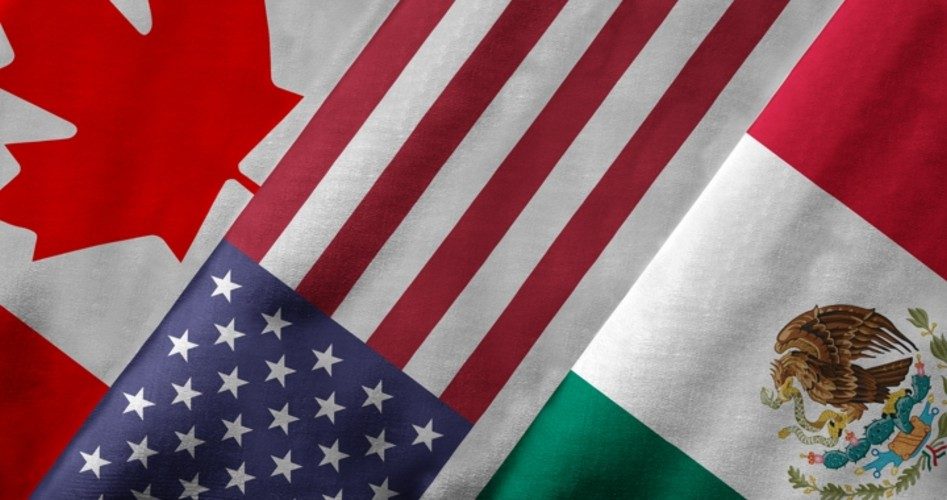
Despite signs earlier this week that the United States and Mexico had made a “breakthrough” and could have reached a “handshake” deal on a NAFTA redux as early as Thursday, the day passed without any new deal. Instead, NAFTA renegotiations will likely continue through the weekend and into next week, according to the Wall Street Journal.
Ildefonso Guajardo, the chief trade negotiator for Mexico’s current and soon-to-be outgoing administration of President Enrique Peña Nieto, said, “Progress has been made,” but added, “Nothing is agreed until everything is agreed.”
Despite President Trump’s statements of breaking NAFTA into two separate bilateral agreements (one with Mexico and one with Canada), Guajardo maintained Mexico’s position that NAFTA remain one trilateral agreement.
“We need to have engagement with Canada and the only way it can happen is if we continue into next week,” Guajardo said.
Both U.S. and Mexican trade officials hope to complete their negotiations soon so that they can present a deal for Canada to consider before Mexican President Peña Nieto leaves office on December 1.
Among the issues that Mexico and the United States had reached agreement on is increasing the percentage of each individual automobile that has to be made in North America from the current 62.5% to 75%. Both also agreed to raise the percentage of a car that comes from auto plants that pay higher wages, which the United States and Canada hope will help prevent more of their jobs being outsourced to lower-wage workers in Mexico.
However, disagreement remains over what penalties should exist in the event that automakers fail to meet the new higher requirements. “One proposal,” according to the Journal, “is for existing plants to pay a 2.5% tariff if they fail to meet the requirements but for new plants to face a higher [tariff] rate.”
Any agreement reached between the United States and Mexico would still require the approval of Canada, which has not been included in the recent negotiations this week. However, the Canadian government is closely monitoring the situation.
“We remain in regular contact and as I’ve said consistently we are ready to sit down and continue the hard work of modernizing and negotiating a better deal for all of us,” Canadian Prime Minister Justin Trudeau said on Thursday.
If the United States and Mexico did announce a “handshake” agreement on auto issues, it would be the biggest news in over a year and a major step toward finalizing a new agreement.
While auto-manufacturing rules have taken center stage as a major point of contention between all parties involved, the big elephant in the room that no one is addressing — except this publication and its parent organization The John Birch Society — is what remaining in NAFTA will mean for U.S. sovereignty.
While ostensibly sold and described as a “free trade agreement” — whose reduced trade barriers have resulted in many high-wage American jobs moving south to Mexico — the real objective behind NAFTA is the eventual economic integration and merger of all three member countries into one supranational structure.
NAFTA limits the Executive branch and Congress from raising tariffs on Canadian or Mexican imports in the future unless all three parties agree. Such an agreement hinders the U.S. government from taking measures to protect American industry and jobs, and prevents Congress from exercising Constitutional power to enact tariffs on Mexican or Canadian imports.
The true objective or purpose behind NAFTA was revealed by former National Security Advisor and Secretary of State Henry Kissinger in an article he wrote for both the Los Angeles Times and the Washington Post on July 20, 1993.
In his article, “With NAFTA, U.S. Finally Creates a New World Order,” Kissinger referred to NAFTA as “the most creative step toward a new world order taken by any group of countries since the end of the Cold War.”
Kissinger further stated that NAFTA “is not a conventional trade agreement, but the architecture of a new international system.” The objective is regional government toward one world government by way of regional economic merger. For this reason alone, the United States should withdraw from NAFTA regardless of how favorable some aspects of the agreement may appear on the surface.
Like a frog slowly boiling in a pot of water, continued U.S. participation in entangling economic arrangements such as NAFTA does not bode well for American independence and sovereignty.





